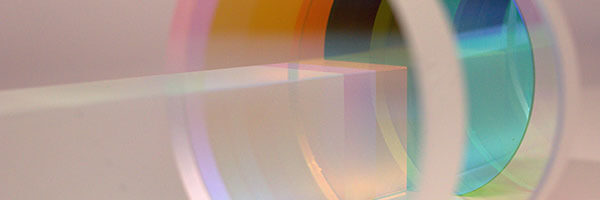Ultrafast CoatingClose cooperation between ARO thin film engineers and leading ultrafast researchers has enabled us to develop high performance mirrors and polarizers for the ultrafast industry. The E-max coating was designed by ARO engineers to provide high laser damage thresholds for Ti:Sapphire lasers. Our products are built to withstand ns, ps, or fs pulse durations for your ultrafast laser system. | |||
Ultrafast Optical Mirrors
ARO’s ultrafast mirrors are designed to deliver superior performance for demanding beam steering tasks in Ti:Sapphire laser applications. Currently, we deliver an optimal combination of high reflectivity, broad spectral bandwidth, excellent laser damage resistance, and minimal group delay dispersion. ARO supplies two standard series of ultrafast laser mirrors. Our E-Max high reflectors are specifically optimized to attain the highest pulse Energy damage threshold, while our B-Max coatings are optimized to deliver the Broadest possible bandwidth.
In addition to these stock components, ARO can readily produce optics customized in virtually every aspect including size, shape, substrate material, surface specifications, and performance characteristics. Please contact our technical sales department to discuss your custom optics requirements.
Ultrafast Products Selection

Ultrafast Mirrors
Standard optical mirrors, may not be the optimal option for lasers. Standard coatings will induce interference effects that will be harmful to ultrashort pulses. Alpine Research Optics designed a comprehensive set specially for practical applications.

Ultrafast Polarizers
ARO offers thin film polarizers that have been designed to provide the top performance in Ti:Sapphire amplifiers. Multiple round trips in the amplifier have a multiplying effect on the characteristics of any optic in the cavity. ARO sales team can get you up to speed with the latest technology and offer a free quote.

Spectral Shaping Filter
Standard optical mirrors, may not be the optimal option for ultrafast applications. Standard coatings will induce interference effects that will be harmful to ultrashort pulses.
